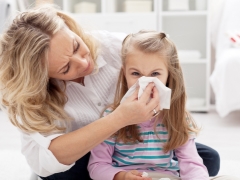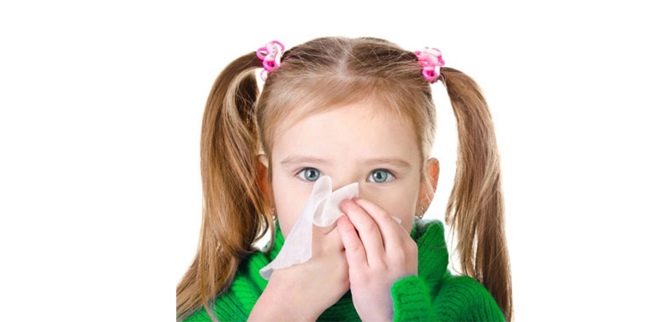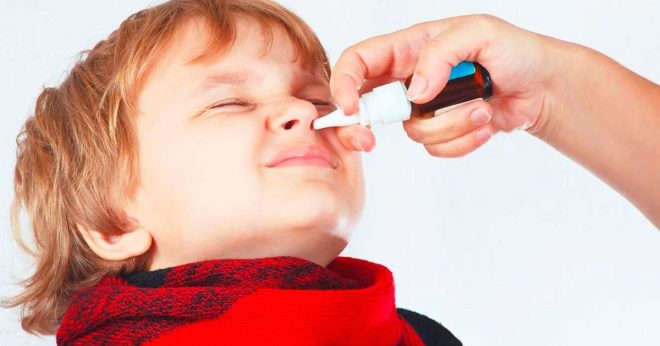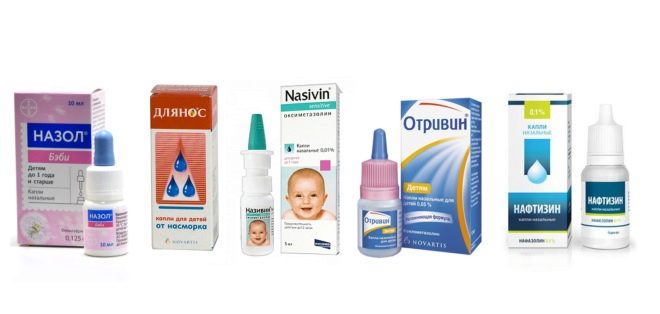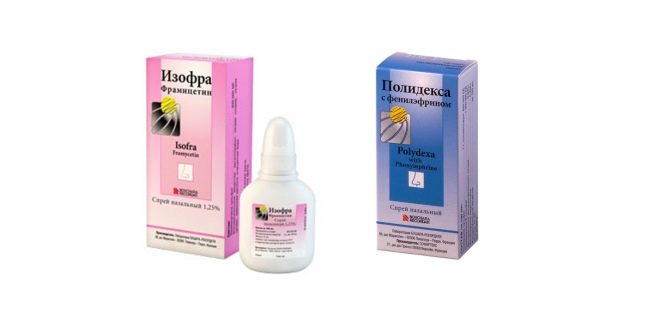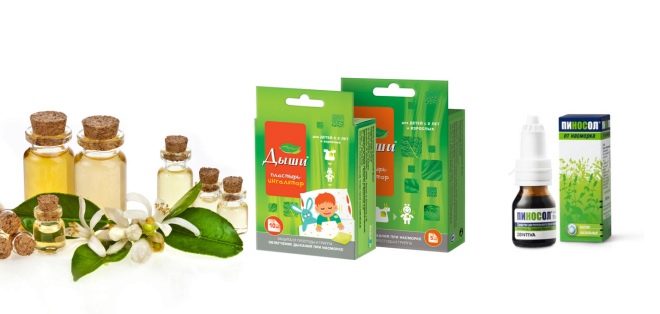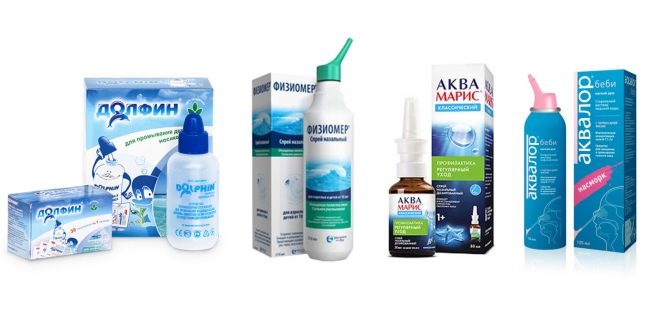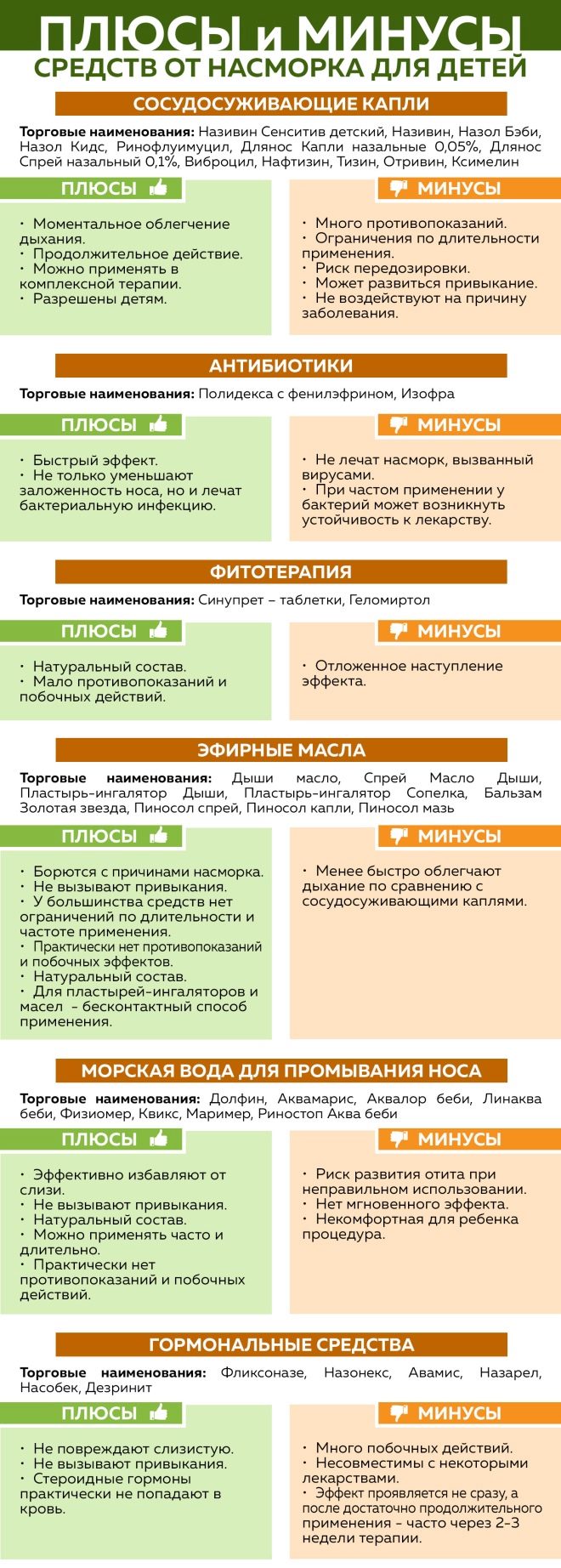Overview of the means of a cold for children. How to choose the most effective and safe means?
In pharmacies, there are many tools for the treatment of rhinitis in children. But are they all effective and safe enough? After all, when it comes to the health of a child, the mother is faced with the task not only to quickly and painlessly eliminate the problem, but also to avoid health consequences in the future.
Runny nose runny discord
For a start, let's look at what types of rhinitis are (or, as is correct from a medical point of view, rhinitis).
Infectious - the most common of all types of rhinitis. It is logical that it occurs on the background of a bacterial or viral infection.
In turn, an infectious rhinitis can be acute (a symptom of an infectious disease in an acute form) or chronic (as a consequence of improperly cured acute rhinitis or prolonged exposure to adverse external factors).
Also distinguish such types of rhinitis as allergic and vasomotor (occurs due to changes in the tone of the vessels in the nose, for example, due to a change in temperature or a strong odor).
We treat infectious rhinitis - how to choose the right drug?
When the question arises of how to properly treat rhinitis, in most cases we are talking about an infectious rhinitis. Preparations for eliminating the common cold and nasal congestion are presented in pharmacies in a huge variety of types and forms. Moms and dads who do not have a special pharmaceutical education, it is very difficult to understand the rich assortment of remedies for the common cold. Most often, parents are guided by advertising, the recommendation of a pharmacist in a pharmacy, the experience of friends or past prescription doctor. While the main criteria for the selection of drugs for the treatment of rhinitis should be completely different. For example, it is not a fact that the medicine that helped last time will save from the cold even now - after all, the nature of the infection may be completely different. And children grow up, therefore, the list of drugs that can be used is expanding, as well as the dosage and concentration of active substances.
There are a number of basic criteria that should guide the purchase of the drug from the cold for a child.
- Age restrictions. Especially if we are talking about very young children.
- Composition. It is especially important to pay attention to the main active ingredient in the preparation, to study the principle and speed of its action before buying, to find out the risk of side effects. Products similar at first glance can be radically different from each other in composition and principle of operation. Consider the example of the increasingly popular method of treating the common cold in children –plastic inhalers. They contain essential oils that reduce inflammation and swelling of the mucous membranes. But the set of essential oils can be different. The plaster inhaler "Sopelka" contains only two components: eucalyptus essential oil and camphor, to which babies are often allergic. And as part of the plaster inhaler "Breathe" already 6 essential oils (mint, eucalyptus, fir, lavender, turpentine, levomenthol), but there is no allergic camphor.
- Form release. Since we are talking about children who are quite difficult to impose an unpleasant method of treatment for them, we must also focus on the form of release of the drug. For example, some children hate to drink pills, others flatly refuse to be instilled into the nose. It is very important not to turn the treatment into anguish and to choose a method of dealing with rhinitis, to which the child will be loyal. As already mentioned, now the choice of means is very large and it is easy to find the optimal one if you figure out how they act, what their advantages and disadvantages are.
Advantages and disadvantages of different groups of remedies for the treatment of rhinitis
Vasoconstrictor drops
The effect of this one of the most popular remedies for rhinitis is that under the action of the drug, the vessels in the nose become narrower, as a result of which the edema falls and breathing becomes easier.
Benefits:
- They act instantly, almost immediately ease breathing and remove congestion.
Disadvantages:
- Eliminate only the symptom, and do not affect the cause - the infection.
- It is addictive, it is not recommended to use longer than 5 days.
- In the case of prolonged use can cause the development of chronic rhinitis.
- May cause a feeling of dryness, irritation in the nose. If the vessels are weak, nosebleeds are possible.
In view of the above reasons, most doctors do not recommend the use of vasoconstrictor drops for the treatment of rhinitis in children.
Antibiotics
Usually drugs for the treatment of rhinitis with antibiotics are presented in the form of drops and sprays.
Antibiotics are effective only in one case - if the cause of a cold is a bacterial infection. If the cause of rhinitis is different, their action will be absolutely useless. The decision on the use of antibacterial drugs takes only a doctor, and no one else!
Phytotherapy
Most often, phytotherapeutic drugs are presented in the form of tablets or drops for oral administration.
Benefits:
- convenient form of admission (many children are easier to persuade to swallow a pill than to drip or wash the nose):
- naturalness
Disadvantages:
- act slowly, usually the effect occurs only after a few days of taking the drug;
- possible manifestation of side effects from the gastrointestinal tract;
- suitable for the treatment of school-age children.
Essential oils
They can be directly in the form of an oil, in the form of a spray or an easy-to-use adhesive plaster. As a rule, these products contain essential oils that have antimicrobial, antiviral, anti-inflammatory properties. Can be used for the treatment of rhinitis, both independently and as part of complex therapy.
Benefits:
- act fairly quickly: they relieve swelling and ease breathing;
- eliminate not only the symptoms, but also the cause of the common cold - pathogens, depending on the composition can effectively deal with viruses and bacteria;
- long action - up to 8 hours;
- naturalness;
- maximum security - means are applied in a contactless manner;
- not addictive, the frequency of use is not limited;
- do not require any additional manipulations: it is enough to inhale the essential oils so that they have a therapeutic effect. You just need to drip the oil on a napkin or stick a plaster on the baby's clothes. Therefore, if a child refuses to flush his nose or to bury his nose, passive inhalation with essential oils is an ideal solution, since it is impossible for him not to breathe frivolous.
Disadvantages:
- in rare cases, individual intolerance to the components, allergies.
It should be noted that due to the almost complete absence of contraindications and side effects of the use of essential oils in the treatment of rhinitis, this is practically the only remedy that can be used without a doctor's prescription. They are also an excellent supportive therapy for the main treatment, or once the course of the medicine prescribed by the doctor has passed, and the residual symptoms remain.
Seawater for rinsing the nose
Mostly presented in the form of sprays.
Benefits:
- effectively helps to get rid of mucus in the nose;
- practically has no contraindications and side effects.
Disadvantages:
- can not be a full-fledged independent method of treatment of rhinitis, it is more correct to use washing as a maintenance therapy (for example, to apply after using vasoconstrictor drops);
- most children are very negative about the procedure of washing the nose;
- there is a risk if the procedure is carried out improperly, put the infection in the ear and provoke otitis.
Hormonal drugs
They are used mainly for allergic rhinitis, but can sometimes be prescribed for severe infectious forms of the common cold. Available in the form of drops, sprays or ointments.
Benefits:
- not addictive,
- Do not irritate the mucosa.
Disadvantages:
- act slowly, the effect only after prolonged use;
- possible side effects: bleeding, bronchospasm, headache.
- Important! Hormonal agents for the treatment of rhinitis can only prescribe a doctor and only if there are serious indications for such treatment.
